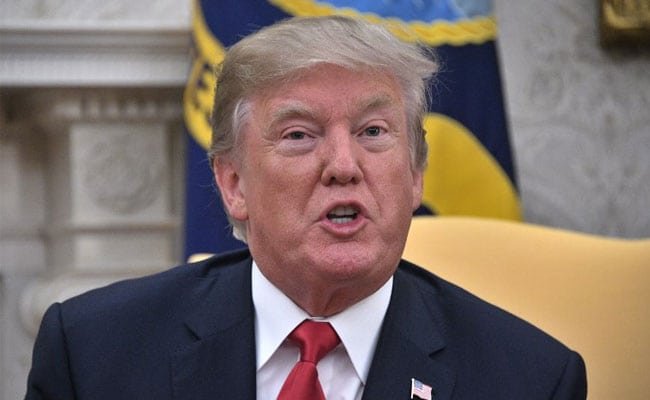President Donald Trump’s call for changes to the decades-old US-Japan security treaty could complicate Prime Minister Shinzo Abe’s drive to revise Japan’s pacifist constitution.
Trump told a news conference on Saturday after a Group of 20 (G20) summit in Japan that the 1960 treaty – the linchpin of Japan’s defence policies – was “unfair” and should be changed. He added he was not thinking of withdrawing from the pact.
The remarks, which echo the US leader’s long-held view that Japan is a free rider on defence, came as Washington pushes for faster progress in trade talks.
“It’s probably more a matter of putting Abe on the defensive in terms of trade negotiations,” said Daniel Sneider, a lecturer in international policy at Stanford University. He added it was questionable whether such a strategy would work.
Abe has long sought to revise the U.S.-drafted, war-renouncing constitution to further legitimise Japan’s military, known as the Self-Defense Forces (SDF).
He has said he wants debate on the topic to be a focal point in a July 21 upper-house election, but constitutional revision is controversial. A Kyodo news agency survey in April showed 47% of Japanese saw no need to weaken the constitution’s pacifist Article 9, while 45% said changes were necessary.
Talk of altering the separate security treaty, revised in 1960 by Abe’s grandfather, premier Nobusuke Kishi, could fan voter opposition to changing Article 9, diplomatic experts said.
Kishi was forced to step down in the face of a huge public outcry. The treaty was changed to commit the U.S. to defending Japan, but many Japanese worried the pact would suck their country into a wider conflict.
“The whole opposition to the revision of the security treaty in 1960 centred on the fact that Japanese didn’t want to be dragged into a war that was not in Japan’s interests,” Sneider said. Trump’s remarks “make what the prime minister is trying to do more difficult, because it makes clear what the implications are.”
Abe spent considerable political capital in 2015 to enact laws that stretched the limits of the constitution to allow Japanese troops fight overseas for the first time since 1945.
The controversial legislation allowed Japan to defend the United States or another friendly country when attacked, if Japan faced an “existential threat.”
EMBOLDENING HAWKS
“I have explained since I first met him (Trump) what Japan’s Self-Defense Forces can do under the constitution,” Abe said in a debate on Sunday with other party leaders.
Under the decades-old U.S.-Japan security treaty, the United States pledges to defend Japan, which renounced the right to wage war after World War Two. Japan in return provides military bases that Washington uses to project power deep into Asia.
Experts say Trump’s remarks could embolden Japanese hardliners eager to bolster Japan’s military in the face of a rising China.
“In a way, this was and is what some in Japan have been seeking for so long – a more ‘symmetrical’ alliance,” said Toshihiro Nakayama, Japan fellow at the Wilson Center in Washington. “So for some who are seeking a more robust security role for Japan, this must be good news.”
But US military officials may be less willing to change the bedrock of the alliance now.
“The professionals at the Pentagon may have a totally different view from Trump,” said a former Japanese diplomat. “They may not want to see Japan increase its military capacity because that would cause concern and anxiety in the region.”
Still, Tokyo could take some steps aimed at addressing Trump’s complaints, he added. Those could include boosting Japan’s spending for U.S. military forces stationed in the country as well as buying more American military equipment.





